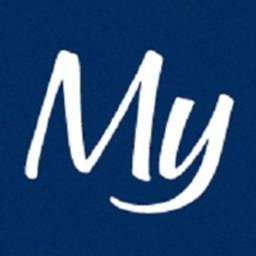FIND_THE_RIGHTJOB.
RN Navigator Structural Heart
Midland, United States
The RN Navigator for Structural Heart is responsible for coordinating comprehensive, specialized care for Structural Heart Disease (SHD)patients, both inpatient and outpatient. The Navigator will function as a central figure in the overall and daily operations of the SHD program and will collaborate in the development, implementation and maintenance of all aspects of care for the SHD patients with the SHD physicians and multidisciplinary team. Expected roles include direct patient contact and coordination of care, as well as, the coordination of weekly meetings and presentations. Specific responsibilities will include assisting with scheduling coordination of evaluations and follow ups, procedures, maintenance of SHD database, overseeing documentation (creation of order sets, procedure instructions, etc.) of the patient experience. With a large geographical area for referrals, the Navigator will screen and streamline referrals so that care is scheduled to eliminate unnecessary travel for the patient and families. The navigator will also assist with data and M&M meetings and assist with driving quality initiatives for the Health System, as well as, attending all collaborative meetings at the state level.
Responsibilities:(40%) Patient Population Management
- Navigates the care of SHD patient population across the complete continuum in collaboration with the relevant providers.
- Will provide expert nurse instruction, education, and consultation to this specialized population.
- Create case presentations, prepare necessary clinical documents and assess needs for additional testing.
- Develops a therapeutic relationship for SHD patients and families and maximizes the patient’s participation in their own recovery
- Serves as the liaison and communication link between SHD patients and their families with referring physicians, PCP’s, specialists, community organizers, patient care services, volunteer programs and works with them to provide care.
(20%) Outcomes and Regulatory Management
- Monitors outcomes and oversees performance improvement activities associated with SHD patients in collaboration with the clinical and leadership teams.
- Develop appropriate program reports and scorecards.
Responsible for ensuring organization and physicians reach and maintain all regulatory guidelines and requirements
(20%) Program Development/Management
- Facilitate activities associated with the system expansion of the SHD program including physician education and clinical staff education.
- Assists in preparation/conduction of SHD multidisciplinary meetings and internal/external program development initiatives.
- Work with hospital reimbursement specialists to facilitate reimbursement strategies
- Develop partnerships/relationships with other clinical areas to standardize SHD care process
(15%) Education
- Oversees and provides SHD education to patient care staff (SICU, PCU, OT, Invasive Imaging, clinic offices, etc.)
(5%) Participate in national, local, internal conferences/symposia of SHD
OTHER DUTIES AND RESPONSIBILITIES
- Coordinates referral process and introduction of patients into the SHD program for purposes of evaluation and assessments. Triages incoming referrals to streamline the evaluation process. Educates the patient/family referral process evaluation steps.
- Guides and directs the continuum of care for SHD throughout the entire process.
- Conducts thorough assessments of the patient to make accurate determination of the patient’s qualifications for the procedure.
- Navigate patients through the evaluation process, multiple providers and multiple institutions
- Develops and implements protocols for care of SHD patients which are evidence bases. Researches current literature and clinic protocols and adapts applicable protocols to current processes.
- Maintains a database of all clinical protocols for reference to assure quality care outcomes.
- Serves as a content expert for SHD procedures.
- Develops educational materials for clinic staff to distribute to patients that outlines evaluation process and consistency of information
- Identifies and implements areas of opportunity for growth of the program when appropriate.
- Provides reports as needed
- Actively participates in performance improvements/research activities designed to improve patient care and/or organizational processes.
- Collaborates with data analysts, clinical research and others to ensure that protocols, registries and clinical pathways are integrated seamlessly.
- Other duties as assigned
BLS: Basic Life Support
Within 1 month of hire or transfer.
RN: Registered Nurse
CHFN: Certified Heart Failure Nurse
CHF certification within 3 years of hire or transfer.
ACLS- Advanced Cardiac Life Support required within 1 year
Bachelor's degree
3 ‑ 5 years experience in Cardiology or related experience preferred
Other Information:
EXPERIENCE, TRAINING AND SKILLS:
1. Exposure to stressful situations, including those involving public contact, as well as trauma, grief and death.
2. Is able to move freely about facility with or without an assisted device and must be able to perform the functions of the job as outlined in the job description.
3. Overall vision and hearing is necessary with or without assisted device(s).
4. Frequently required to sit/stand/walk for long periods of time. May require frequent postural changes such as stooping, kneeling or crouching.
5. Some exposure to blood borne pathogens and other potentially infectious material. Must follow MyMichigan Health bloodborne pathogen and TB testing as required.
6. Ability to handle multiple tasks, get along with others, work independently, regular and predictable attendance and ability to stay awake.
7. Overall dexterity is required including handling, reaching, grasping, fingering and feeling. May require repetition of these movements on a regular to frequent basis.
8. Physical Demand Level: Sedentary. Must be able to occasionally (0‑33% of the workday) lift or carry 0‑10 lbs.
Mandatory Occupational Safety and Health Administration (OSHA) training must be completed annually according to the Exposure Control Plan
Equivalent Experience and Other Comments (Education):
Similar jobs
MUSCP - PSANE - Pediatrics: CAP-1
Medical University of South Carolina
Charleston, United States
4 days ago
Weekend Package Registered Nurse (RN)
Trilogy Health Services
Lexington, United States
11 days ago
Ware MDS Care Plan Coordinator
Baptist Community Services
Amarillo, United States
11 days ago
Travel Nurse - RN - ICU - Intensive Care Unit
Cynet Health
Boston, United States
11 days ago
Staff RN - Full Time - Emergency Room
Baymont Emergency Room
Baytown, United States
11 days ago
Staff Nurse-Medicine/Surgery
NYC Health + Hospitals
New York, United States
11 days ago
Staff Nurse - ACS - Pediatrics
University Hospital, Newark NJ
Newark, United States
11 days ago
© 2025 Qureos. All rights reserved.
